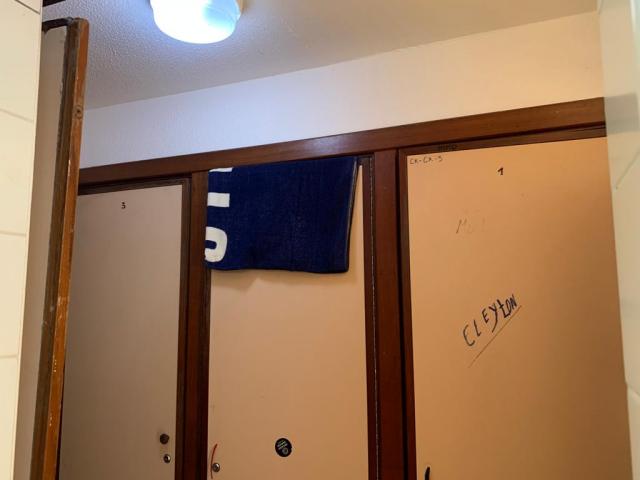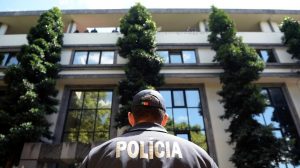The São Tomé Prime Minister, Patrice Trovoada, referred to the Portuguese authorities asking for clarification about allegations of discrimination against students at the Professional School of Hospitality and Tourism, who have stated that they are being discriminated against, but have declined to classify the situation as slavery.
When asked by journalists about the information advanced by the Diário de Notícias da Madeira on Friday about cases of threat, discrimination, and “slavery”, denounced by students and staff of that school, the São Tomé Prime Minister stated:
“We are monitoring the situation closely, but are confident that Portugal, as a law abiding country, will uncover if anything untoward is going on, and that the Portuguese authorities would be the first to know and deal with the situation.”
“I don’t want to talk about a student in slavery. People use excessive words. We’re first listening to everybody. We have protocols with Portugal and if it is a situation that happens in Portugal, it is up to the Portuguese authorities first, to deal with this situation,” said the São Tomé Prime Minister, stating that he does not want to “have a war of words from either side.”
Patrice Trovoada stressed that the São Tomé embassy in Portugal should supply “protocol support to all São Toméans who are in Portugal and beyond,” and that the São Tomé Ministry of Education “has also been advised of the matter,” but advises that the situation should first be investigated by the Portuguese authorities.
The Government of Madeira forwarded to the Regional Inspection of Education a letter relating to São Toméan students of the Professional School of Hospitality and Tourism who believe they are being discriminated against so that the case is investigated “urgently.”
The concessionaire of the School of Hospitality and Tourism of Madeira today rejected any discriminatory practice concerning students from São Tomé and Príncipe and considered that a small group of students instigated the recent protests.
About 50 students from São Tomé and Príncipe demonstrated on Monday in front of the Professional School of Hospitality and Tourism of Madeira (EPHTM), in Funchal, claiming to be victims of discrimination, heavy workloads, and poor accommodation conditions.
“CELFF (Centre for studies, languages, and training – Funchal) vehemently rejects the existence of any discriminatory conduct or practice,” said João Pedro Entrudo, stressing that the possible difficulties of adaptation or the less appropriate behaviours of some students do not call into question the school’s teaching model.
The official explained that about 200 São Toméans are enrolled in EPHTM, under a protocol established in 2018 between CELFF and the government of São Tomé, for three-year training courses.
Of the 200 students, about half attend the extension of the school on the island of Porto Santo.
The course is funded by the European Social Fund, but CELFF is responsible for meals, accommodation, transport, and school insurance.
According to João Pedro Entrudo, EPHTM provides São Toméan students with three daily meals “strictly equal” to those of other students, and 50 students are housed in the school’s residence, where students from Madeira, Cape Verde, South Africa, Angola, and Mozambique have also stayed.
There are also about 60 students who are housed in CELFF’s partner hotel units, mostly 4 and 5-star units.
The official indicated that the school’s residence was the subject of “extensive remodeling and maintenance works” between 2021 and 2022, with students being responsible for cleaning the rooms.
João Pedro Entrudo guaranteed, on the other hand, that there is no excess of hours at the level of training or internship work, clarifying that the workload and curriculum are approximately 35 hours per week, with a maximum of seven classes per day, with two consecutive days of mandatory rest.
“This workload is scrupulously respected,” he said.
The Regional Secretariat of Education, Science, and Technology became aware of the situation of São Toméan students at the Professional School of Hospitality and Tourism of Madeira, having immediately decided to forward the written complaint, which was delivered to him by a student, to the Regional Inspection of Education, so that appropriate measures could be undertaken.
PS-M Parliamentary leader, Rui Caetano, believes that competent and quality training is essential to respond to existing gaps and to correspond to an increasingly demanding labour market, and this cannot take place without someone complaining about the work.
Samantha Gannon
info at madeira-weekly.com






